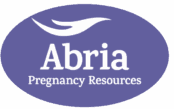After the Supreme Court ruling Roe v. Wade was reversed, it’s confusing to interpret how abortion access for women across the United States has been affected.
Read this article for common questions about this historic court ruling and the facts about abortion access in the U.S.
What Did the Supreme Court’s Overruling Mean?
In 1973, the sitting Supreme Court ruled that the U.S. Constitution included a woman’s right to an abortion. This decision meant that abortion was a federally-protected right.
In the summer of 2022, the existing Supreme Court ruled that the Constitution did not include this right.
While this did not criminalize abortion overnight, it did remove federal protection status. Now each state has the authority to regulate or restrict abortion access individually.
Some states already had abortion protected in their state constitutions in anticipation of this decision. In contrast, others had “trigger laws” ready to restrict abortion access after a specific window of time after Roe’s overruling.
How Does the Supreme Court Overruling Impact Women’s Healthcare?
The overturning of Roe only impacted abortion access, and there is no sign that women’s access to medical care for pregnancy-related conditions (such as miscarriage or ectopic pregnancies) will be restricted.
Even in more restrictive states, regulations include health provisions that allow abortion if a pregnancy threatens the woman’s life.
What are the Restrictions on Abortion in Minnesota?
Minnesota still has laws and its state constitution that allow abortions up to viability. After this point, exceptions can still be made for an abortion if the woman’s life is endangered.
The state constitution protects abortion, so the only way it would become illegal is through an amendment.
What is Important to Consider Before an Abortion?
At Abria Pregnancy Resources, we offer no-cost pregnancy services that are essential before making a pregnancy decision.
You can learn details such as the pregnancy’s age, location, and status with an ultrasound.
The age of the pregnancy can inform you which abortion procedure you may be eligible for. The location of the pregnancy can notify you whether or not it is ectopic, which means located outside of the uterus. An ectopic pregnancy can be life-threatening and should be treated immediately.
Facing an unplanned pregnancy can be scary, but you don’t have to walk it alone. Contact us today to make your appointment!
Abria offers support at no cost to you regarding your decisions but does not refer for or perform abortions.
